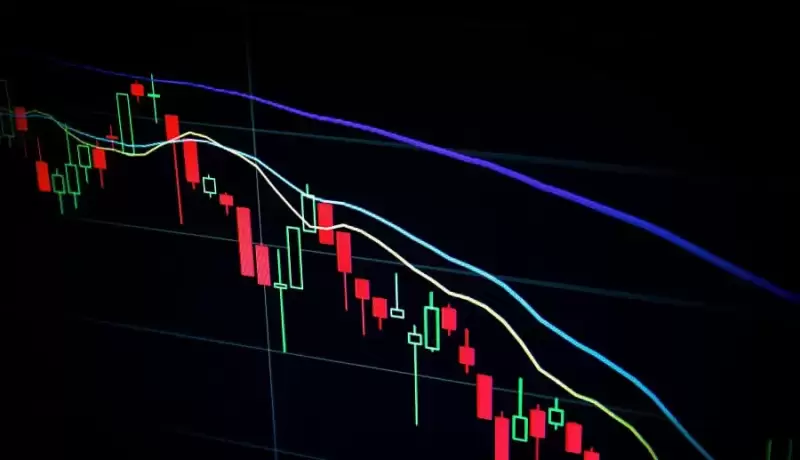 |
|
 |
|
 |
|
 |
|
 |
|
 |
|
 |
|
 |
|
 |
|
 |
|
 |
|
 |
|
 |
|
 |
|
 |
|
Cryptocurrency News Articles
The fusion of artificial intelligence (AI) and blockchain is emerging as one of the hottest trends in tech investing.
Apr 13, 2025 at 06:27 am
As Big Tech firms like Alphabet, Microsoft, and Amazon dominate the AI space, the crypto industry is pushing for decentralized alternatives that address concerns around data ownership and centralized power.

The intersection of artificial intelligence (AI) and blockchain is quickly heating up as a tech investment trend.
While Big Tech firms like Alphabet, Microsoft, and Amazon are making huge strides in AI, the crypto industry is working on decentralized versions of the technology that could offer alternatives to address concerns around data ownership and centralized power.
This vision has already seen venture capitalists back decentralized AI projects with nearly $917 million in funding, according to startup data platform Tracxn.
Highlighting how crypto wallets and token networks can support autonomous AI agents, financial participation, and decentralized infrastructure, blockchain firm Theta Capital described this convergence as “the new meta.”
Among the leading firms investing in this space is Hack VC, which has allocated 41% of its latest fund to Web3 AI startups, which its managing partner, Alex Pack, describes as “the biggest source of alpha in investing today.”
One of its key investments is in Grass, which is building peer-to-peer AI networks by rewarding users for sharing unused internet bandwidth—offering an ethical alternative to the data-scraping practices of major tech companies.
But there are also risks to consider. As several critics have pointed out, decentralized AI could also serve to automate some of the worst aspects of the internet—like spam, misinformation, and meme coin scams.
However, blockchain-based solutions like proof-of-humanity and micropayment barriers are being developed to help mitigate these concerns.
Ultimately, though, this convergence has the potential to reshape the digital landscape in unexpected ways.
As Polychain Capital's Olaf Carlson-Wee put it, AI will eventually outperform humans in financial markets, not through conflict but consensus.
"The AI takeover won't be a war we lose—it will be a suggestion we agree to," he said.
output: The convergence of cryptocurrency and artificial intelligence (AI) is heating up rapidly, presenting a new wave of investment opportunities and technological possibilities.
While behemoths like Alphabet, Microsoft, and Amazon are making great strides in AI, the crypto industry is forging decentralized versions of this technology that could offer unique alternatives.
Specifically, this new wave of AI models, which are often trained on large language models (LLMs) and operate in a decentralized manner, are aiming to provide an alternative to the existing models developed by major tech companies.
These models are frequently scraping data from online platforms to train their AIs, leading to concerns about privacy and data ownership.
To date, venture capitalists have already poured nearly $917 million into decentralized AI projects, according to startup data platform Tracxn.
Highlighting how crypto wallets and token networks can support autonomous AI agents, financial participation, and decentralized infrastructure, blockchain firm Theta Capital described this convergence as “the new meta.”
Among the leading firms investing in this space is Hack VC, which has allocated 41% of its latest fund to Web3 AI startups, which its managing partner, Alex Pack, describes as “the biggest source of alpha in investing today.”
The firm's portfolio includes startups like ChainGPT, which is building a decentralized network for AI tokens and protocols, and Unchained AI, which is developing a decentralized autonomous organization (DAO) to govern AI systems.
Another interesting startup in Hack VC's portfolio is Grass, which is focused on building peer-to-peer AI networks by rewarding users for sharing unused internet bandwidth.
This model offers an ethical alternative to the data-scraping practices of major tech companies and could empower individuals to participate directly in the development and utilization of AI technology.
However, this emerging landscape of decentralized AI is not without its critics. Some fear that it could serve to amplify the negative aspects of the internet, such as spam, misinformation, and meme coin scams.
Despite these concerns, blockchain-based solutions are being developed to mitigate them.
For instance, to prevent spamming activities, platforms would typically require users to perform a small action, such as a click or a token transfer, in order to post a message or comment.
Moreover, to counter misinformation, blockchain technology can be used to trace the origin and history of information, rendering it more difficult to spread false or misleading content.
Finally, to deter meme coin scams, platforms can introduce micropayment barriers, requiring users to pay a minimal amount to interact with specific content or applications.
This would serve as a deterrent against frivolous or malicious activity, encouraging more meaningful and engaged participation within the ecosystem.
Ultimately, this convergence of crypto and AI has the potential to shift control of the digital economy away from centralized entities and towards open, permissionless systems.
The question isn't whether this will happen—but how fast.
Disclaimer:info@kdj.com
The information provided is not trading advice. kdj.com does not assume any responsibility for any investments made based on the information provided in this article. Cryptocurrencies are highly volatile and it is highly recommended that you invest with caution after thorough research!
If you believe that the content used on this website infringes your copyright, please contact us immediately (info@kdj.com) and we will delete it promptly.
-

-

-

-

- Bitcoin Chopped Between $84,000 and $85,000
- Apr 15, 2025 at 10:25 am
- Leading cryptocurrencies remained flat on Monday
-

-

- South Korea Bans 14 Mobile Crypto Apps From Apple's App Store Targeting KuCoin, MEXC, and Other Unregistered VASPs
- Apr 15, 2025 at 10:20 am
- Today, South Korea's Financial Intelligence Unit (FIU), operating under the Financial Services Commission (FSC), intensified its regulatory actions by blocking access to 14 mobile applications
-

-

-





























































